In Kenya’s ever-changing political environment, the tension between sacrifice and reward remains a sensitive issue, especially among the Luo community.
Many people from the community have consistently supported liberation struggles and opposed oppressive regimes over the decades.
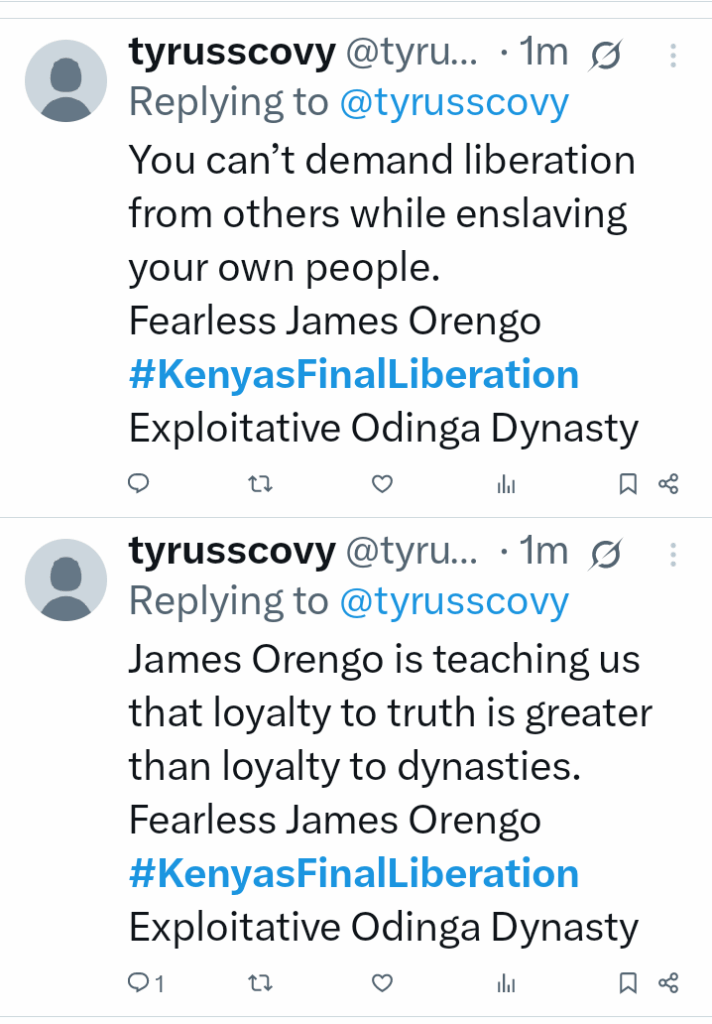
Yet, recent statements by Siaya Governor James Orengo suggest that despite this history of sacrifice, the benefits have often gone to a single family the Odinga family.
This has opened up serious conversations about whether political rewards are shared fairly or if power remains concentrated within a small circle that uses community loyalty for personal political gain.
Orengo’s remarks were made during the burial of George Oduor, a former bodyguard of Raila Odinga, and have since caused intense debate.
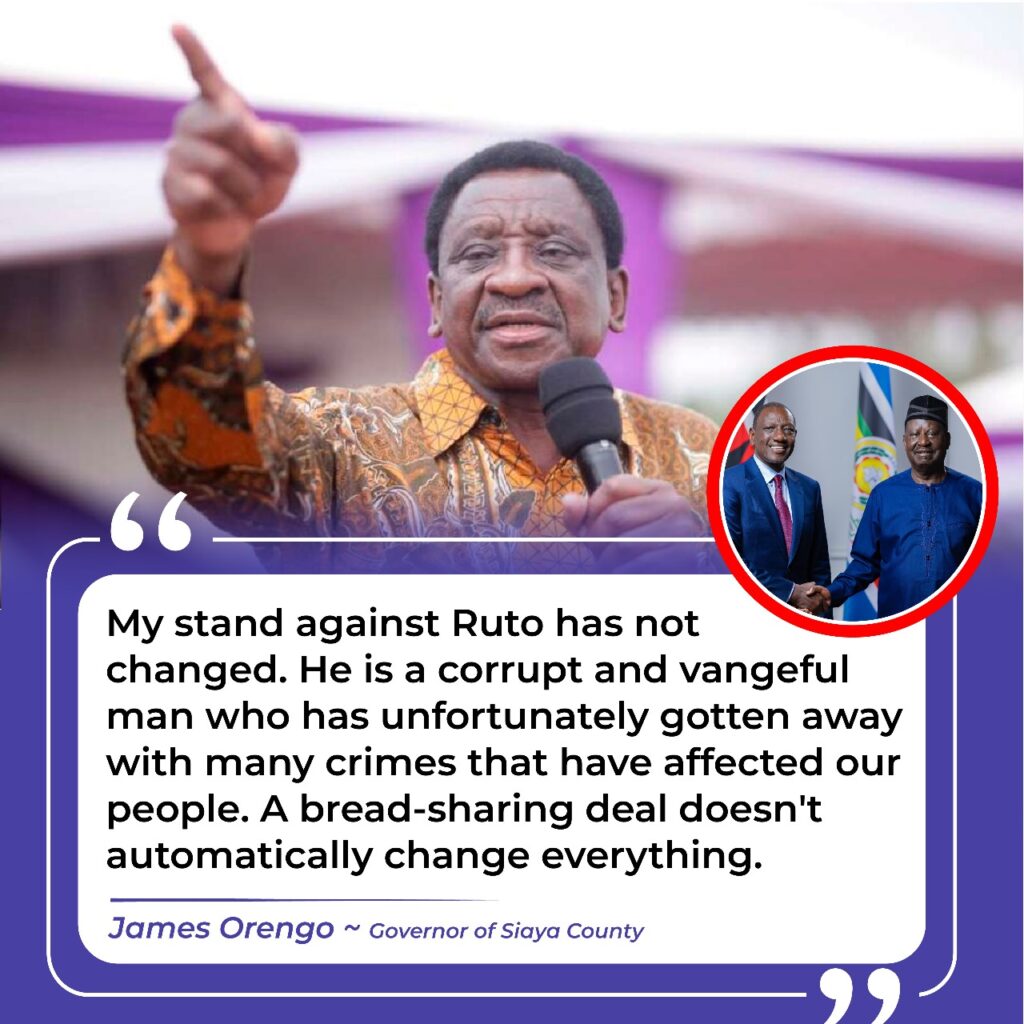
He pointed out that while many Luos have died in the fight for democracy and justice, only the Odinga family appears to benefit politically. This comment has sparked anger in some quarters but has also found support from a section of the public that feels exploited.
Social media users have echoed Orengo’s concerns, with some saying they have been used as “blood sacrifices” for an agenda that never includes them in the rewards.
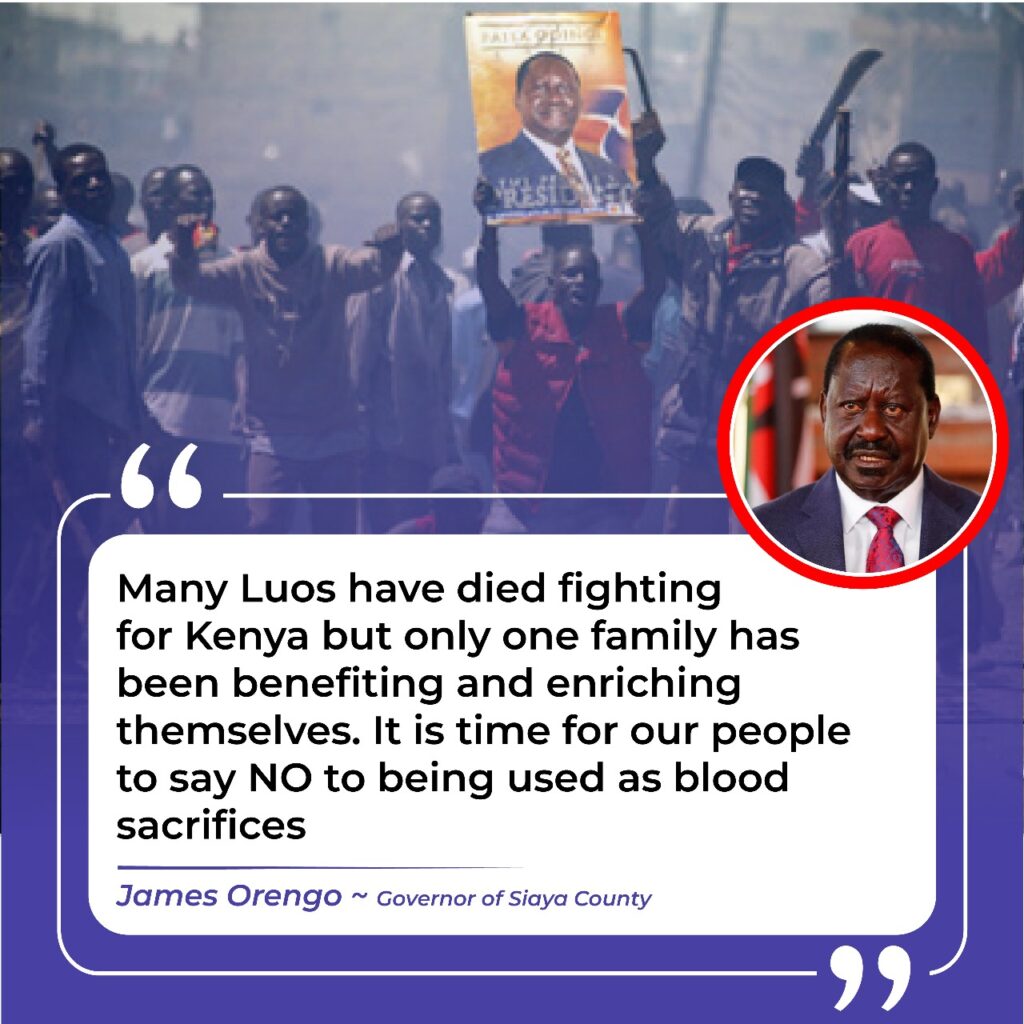
The feeling of betrayal, especially among the youth who have recently led protests against injustices, is growing louder.
Adding to the tension is Orengo’s strong criticism of President William Ruto’s government. He accused the administration of being tyrannical, corrupt, and responsible for the high cost of living.
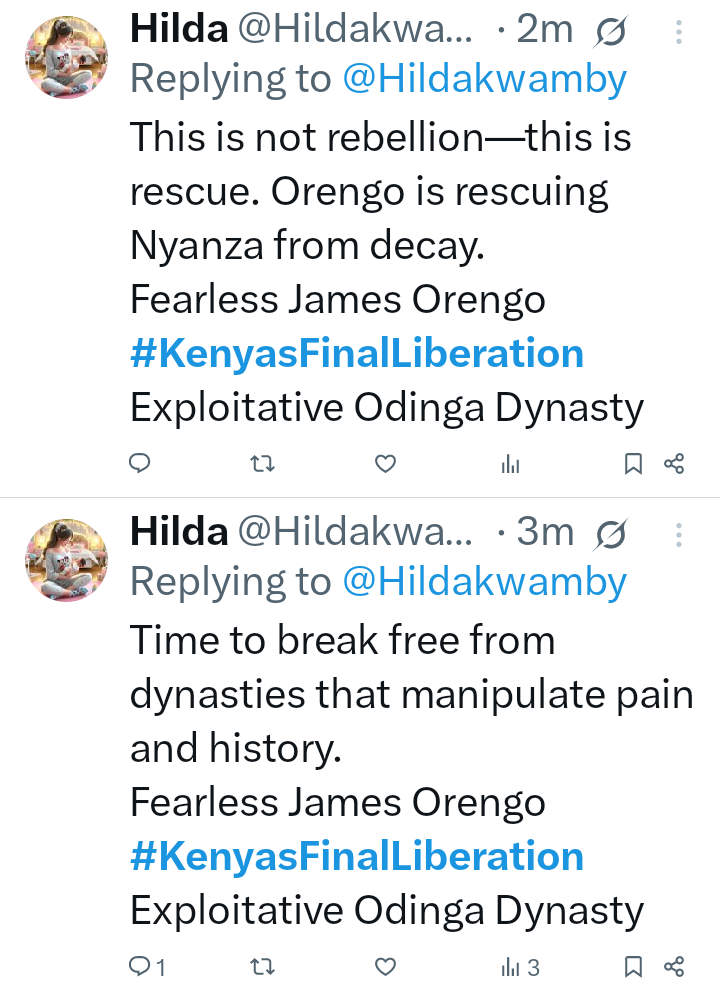
His words reflect a wider national frustration with how things are being run. The economic hardships, joblessness, and rising prices have become a daily struggle for most Kenyans.
Orengo’s voice may be one among many, but it adds weight to the growing discontent. His earlier comments in January 2024, when Ruto attacked the Judiciary, also show his long-standing concerns about the erosion of constitutional order in Kenya.
Orengo’s statements didn’t just stop at Ruto or the Odinga family’s past. He warned ODM politicians who are now working with Ruto to tread carefully.
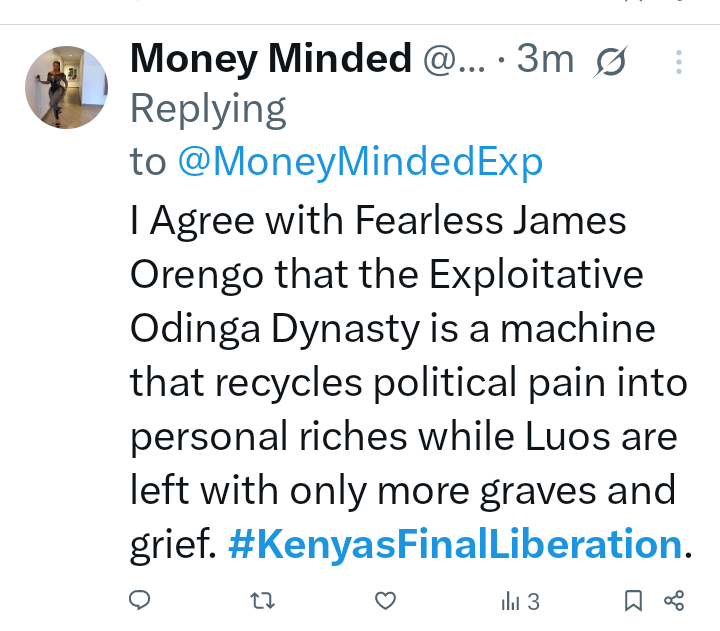
He used the phrase “revolutions eat their own offspring” to suggest that politicians who switch sides or compromise without solid agreements risk being discarded once they’re no longer useful.
This warning seems to be directed at a few ODM leaders who have accepted roles or shown support for the current administration, perhaps hoping for political survival or personal gain.
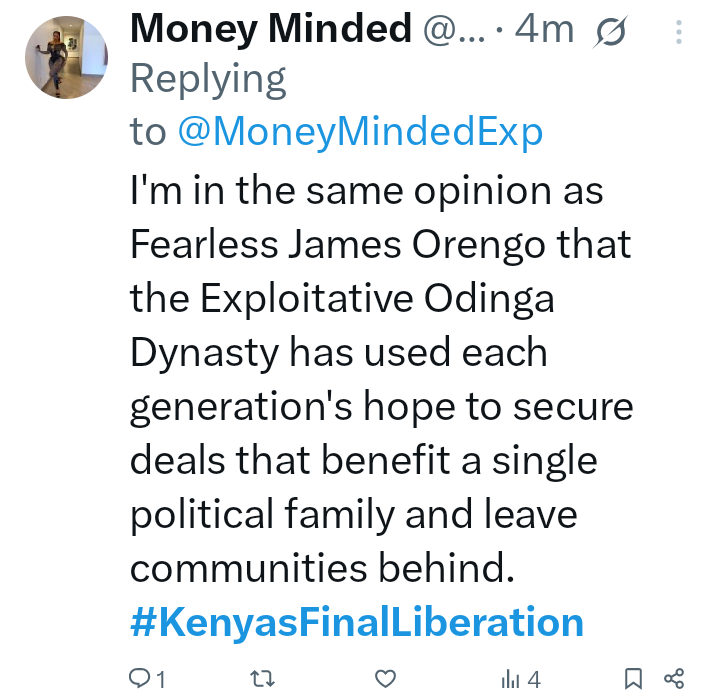
However, Orengo sees this as a dangerous game that could backfire.Another issue he brought up is the concentration of political positions within the Odinga family.
He noted that one family has managed to hold many important offices under the ODM banner—from president, senator, governor, to regional positions.
This, he argued, looks like nepotism and is a clear sign that the party may no longer be about national unity but about maintaining control within a tight circle.
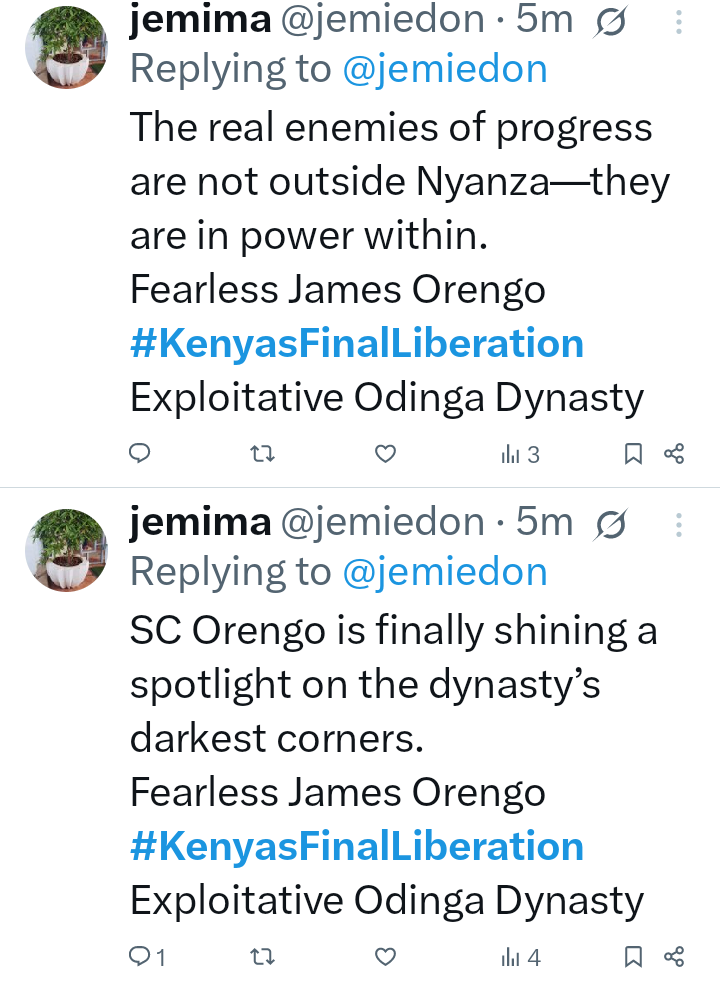
Critics online have echoed this, pointing out that while the public continues to vote based on loyalty, the leadership positions remain within the same family.
Not everyone agrees with Orengo. Some Kisumu residents and political allies of Odinga accused him of jealousy and being bitter about not receiving certain appointments.
They viewed his comments as divisive and unnecessary during a funeral event. Others felt that despite the flaws, the Odinga family has done more for the community than any other leader.
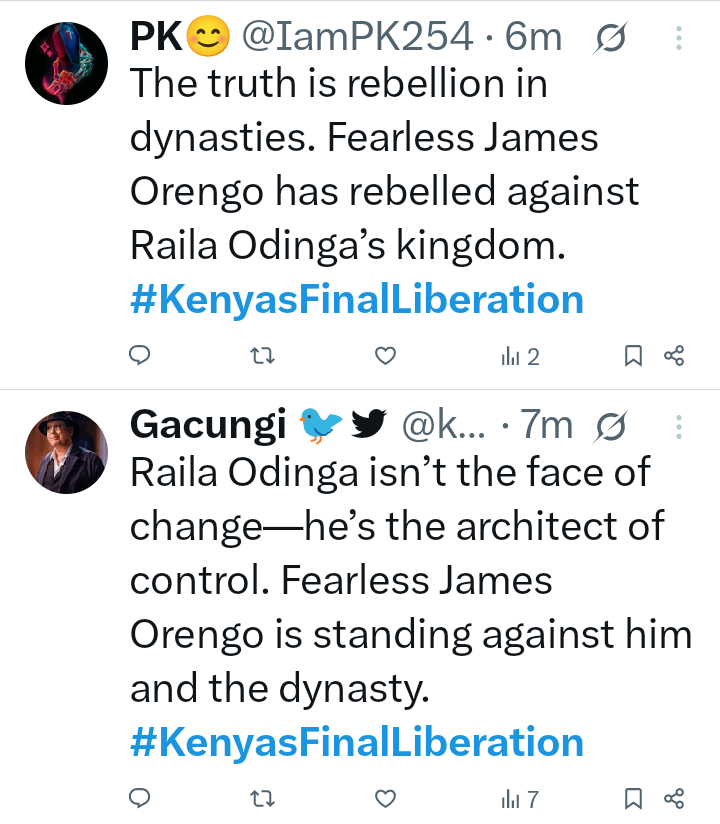
However, Orengo’s supporters argue that raising these questions is not betrayal but necessary if Kenya is to move forward and break the cycle of dynastic politics.
This unfolding debate shows just how fragile the trust between leaders and citizens has become. For many young Kenyans, especially Gen Z activists who have faced arrests and violence during protests, the idea that their sacrifices are ignored while certain families grow more powerful is hard to accept.
They see the political class, whether aligned to Ruto or Odinga, as out of touch with the struggles of ordinary people.
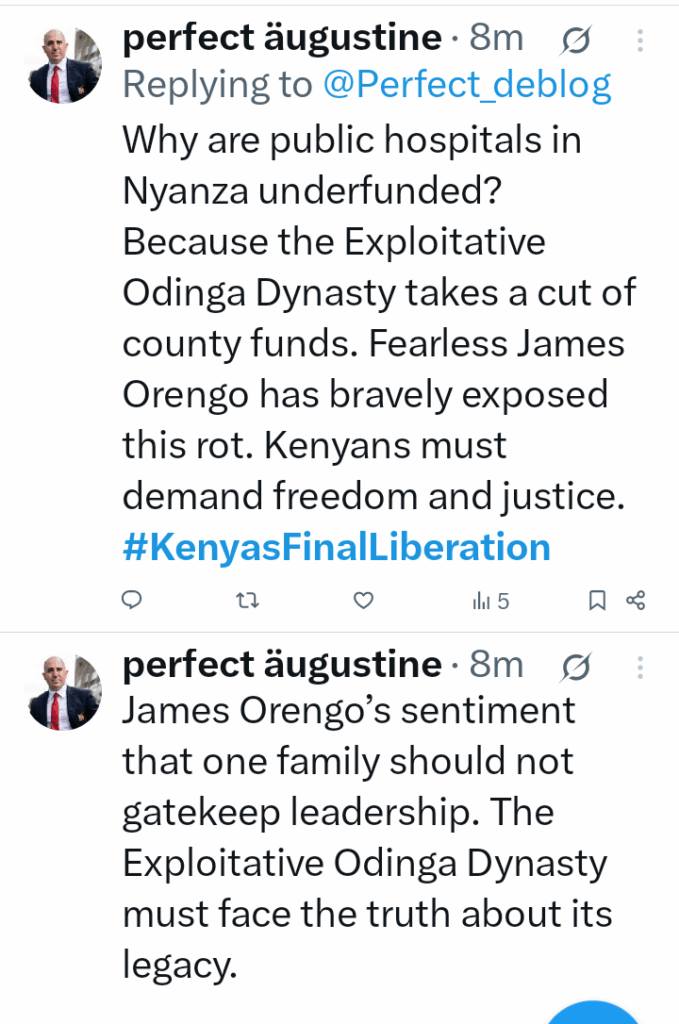
These conversations will likely continue to shape the political circles. Whether they lead to real change or further division depends on how leaders respond not with anger, but with honesty, fairness, and a willingness to put the country before personal gain.
Orengo’s words, whether popular or not, have opened a window for deeper reflection on where Kenya is headed and who truly benefits from its democracy.


